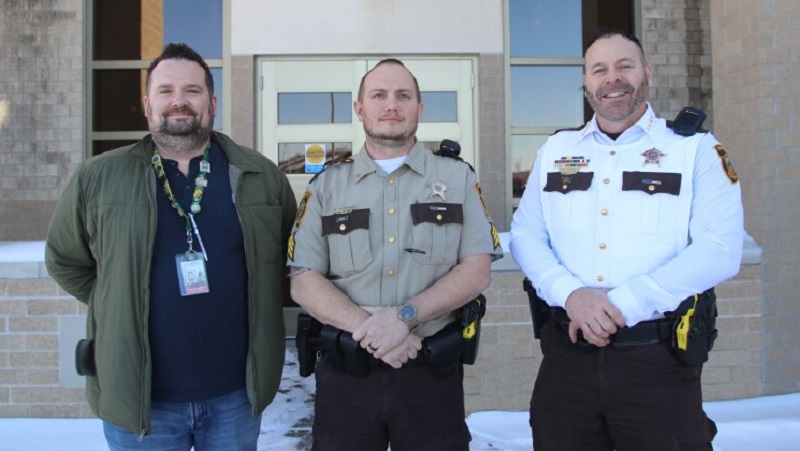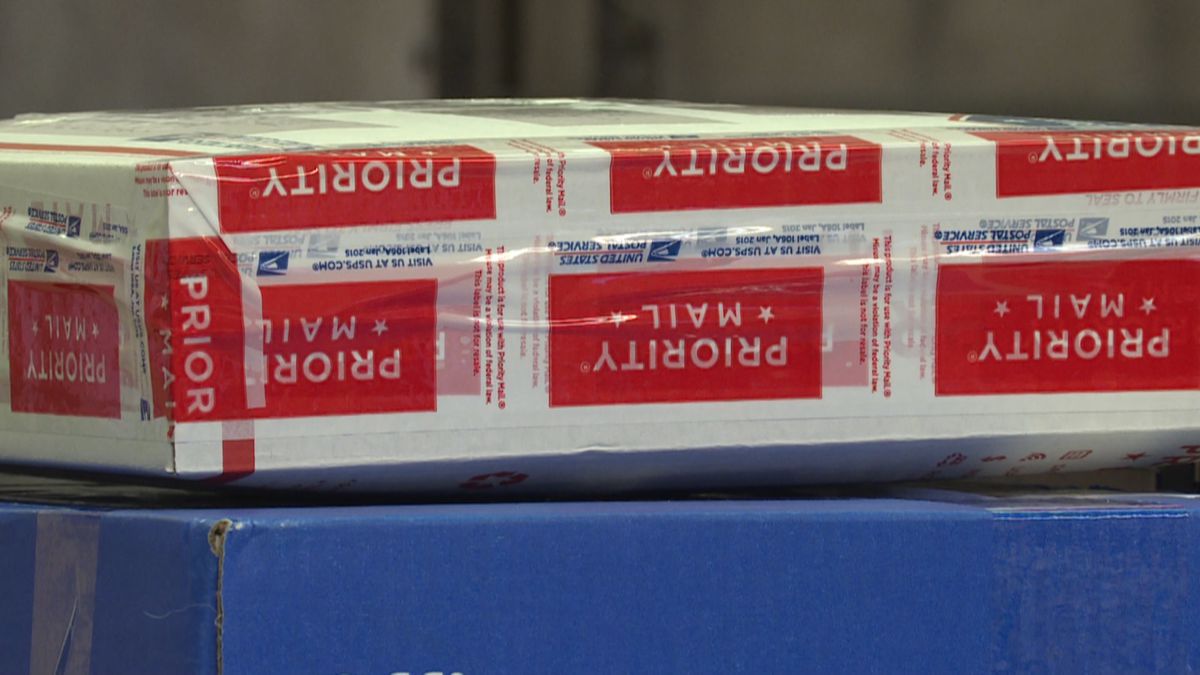Fargo, North Dakota – The Cass County Sheriff’s Office came up with a solution to aid the numerous veterans who are detained but forget to disclose their military status at the jail’s intake office.
In a Facebook post, the Cass County Sheriff’s office reported that across the country, “a large number of incarcerated individuals don’t self report as veteran to law enforcement entities, which means these entities are not able to refer the individuals to services or may not be educated on the services that they rate from their military service.”
Less than 50% of veterans who have been admitted to the Cass County Jail declare their veteran status, according to deputies who started collaborating with the Department of Veterans Affairs (VA) in early September because they were observing the same pattern locally.
According to Sheriff Jesse Jahner, only 5% of detainees at the Cass County Jail are veterans, which prevents them from receiving much-needed support once they are freed.
Sgt. Kale Peterson came up with the idea, according to Jahner, and brought it back. “That’s how we want to look at our organization as a whole, and how we can build relationships. He took this and ran with it,” Jahner said.
After attending a National Sheriff’s Association conference where he won the supervisor of the year award, Peterson learned about the program. While there, he discovered a seminar discussing a project that would aid veterans serving time in prison.
“I saw one that was geared toward jails and prisons and when I went I saw it was veterans orientated. And when I saw it was free, I reached out to our contact at the VA about it,” said Peterson, who served in the Marine Corps in Jordan and Afghanistan.
According to Peterson, the goal is to simply identify those inmates who are eligible for assistance and provide them with options for those services.
The application has a straightforward interface. The jail contacts the VA and provides them with a list of inmates’ names. Consent papers and other paperwork are moved around before the VA notifies deputies of which prisoners are veterans.
Before the sheriff’s office started collaborating with the VA, Chris Deery, a veteran services employee in Cass County, claimed there was no discharge plan in place for those who had served.
“I loved the idea when I first heard of it. We noticed in the past people got released and they didn’t get the benefits they should have, so this jump starts their life again,” Deery said. “It gives them a second chance to shoot for a goal.”
Deery is still looking for approximately 3,000 of the 12,000 or so veterans in Cass County, he said. Working with the jail will also help find veterans who escaped attention so that they might receive support, he claimed.
According to Deery, a U.S. Army veteran who served in Iraq, some of the assistance veterans can get includes health care, returning to school, submitting claims with the VA office, vocational rehabilitation programs, and more.
According to Jahner, many veterans are ashamed to reveal their status, and they might not do so if they wind up in jail after serving their nation.
“They feel shame, and they don’t want to admit it because they don’t want to associate the two,” Jahner said of being both a veteran and an inmate.
When asked if they were veterans at intake, some people, according to Peterson, would respond, “What does it matter?”
“It’s the stigma of coming to jail, and knowing you were once a veteran,” Peterson said.
When they are released, the VA has several resources available to help them find employment or manage their lives, according to Deery.
Veterans have also been much more compliant and cooperative with authorities, Peterson added, “once they see we’re not just a holding facility.”
“Any time we can help our veterans and give them another chance, we’re happy with it,” Jahner said. “I don’t think anyone else is doing this in North Dakota.”











